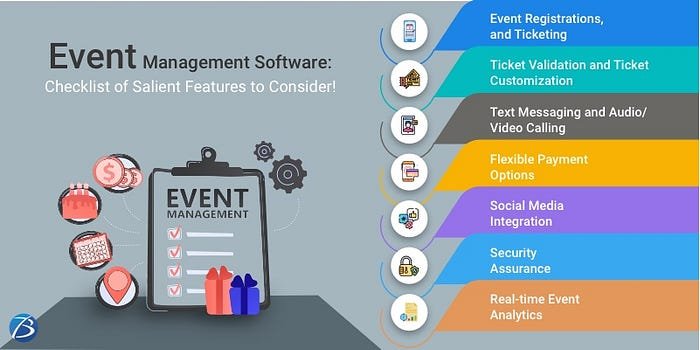In today’s fast-paced and digital world, the organization of large-scale events like expos, conferences, and trade shows would require meticulous planning, coordination, and execution. EMS has become an essential tool in the arsenal of an event planner to streamline complex event logistics and operational management functions for large events. In particular, expo management software serves the specific needs of exhibitions and trade shows by providing a variety of rich features that may make events planning processes more effective. Here’s why event management software cannot be dismissed when it comes to major events:
Centralized Event Planning and Coordination
Event management software is one integrated central place for all functions related to events. These EMS integrate event scheduling, tracking budget, coordination of speakers, vendor management, and many more from the time of inception of planning up to after the event for analysis purposes. For big events, where many teams and stakeholders are involved, this centralized platform does not allow miscommunication or errors to occur.
Expo management software specifically means the easy management of exhibitor registrations, booth allocation, and floor planning. Real time updates can be followed through by all the team members so that no one gets left behind-considering how important keeping events on course is.
Streamlined Registration Process
One of the most important things for any large event is registration. EMS simplifies attendee registration by providing an online portal for easy sign-ups, payment processing, and ticket management. It also allows the collection of valuable data, such as attendee demographics and preferences, which can be used to improve future events or marketing strategies.
They usually also provide tools for exhibitor registration, which help the exhibitor book booth space, upload materials, and choose available time slots for presentations or meetings. This amount of automation really saves organizers a substantial amount of time and effort, especially for events with hundreds or thousands of participants.
Efficient Communication with Attendees and Exhibitors
Facilitating effective communication in large-scale events is quite essential. EMS enables the organizer to communicate directly with attendees and exhibitors with the help of integrated features like email, SMS, and push notification. Such communications include important updates, event schedules, session reminders, exhibitor highlights, and emergency alerts.
An expo management platform allows the company to keep an exhibitor updated on important deadlines, booth setup times, and opportunities for attendee engagement. Similarly, attendees will be kept informed about session changes, announcements from speakers, or special offers.
Data Analytics and Reporting
Data is vital to understanding whether an event has been successful and on making informed decisions for the next event. Expo management software includes analytics tools that generate reports on key metrics: attendee engagement, exhibitor performance, ticket sales, and financial outcomes. Data will allow the event organizer to know the impact of his event, areas where improvement can be made, and a return on investment (ROI).
At the same time, the number of interactions, which booths or sessions they attended, can be tracked by an event organizer to better understand their participants’ behavior to fine-tune future event strategies or marketing campaigns.
Improved Attendee Experience
The goal of a large event is attendee satisfaction. EMS can enhance the attendee experience through personalized schedules, event apps, interactive floor plans, and reminders related to sessions. With easy access to event information and a flexible way to create a personalized agenda, attendees can better navigate the event and make the most of their time.
Expo management software may also provide tools such as attendee networking facilities, allowing participants to connect based on common interests or goals. This may increase the level of engagement and opportunities in business.
Cost-Effectiveness
Managing a large event always seems like an expensive affair and time-consuming in a manual way. Expo management software reduces overhead by automating many aspects of event coordination, such as registration, payments, and reporting. It therefore saves cost, reduces errors, and conserves resources for more productive uses.
In addition, EMS tends to have integrated budget management tools that allow event organizers to track their expenditure and keep abreast of available funds. This, in turn, decreases the involvement of third-party services, which minimizes the complexity of event planning.
Conclusion
The use of event management software for large events, including expos, conferences, and trade shows, is indispensable. Expo management software streamlines the otherwise complicated processes of registration, communication, coordination, and reporting to ensure a smooth event. Utilizing this technology creates a better experience for the attendees, improves operational performance, and positively impacts results while at the same time cutting costs and limiting mistakes. Ultimately, expo management software is a game-changer that allows event planners the ability to focus on delivering excellent experiences rather than being bogged down in logistical challenges.
